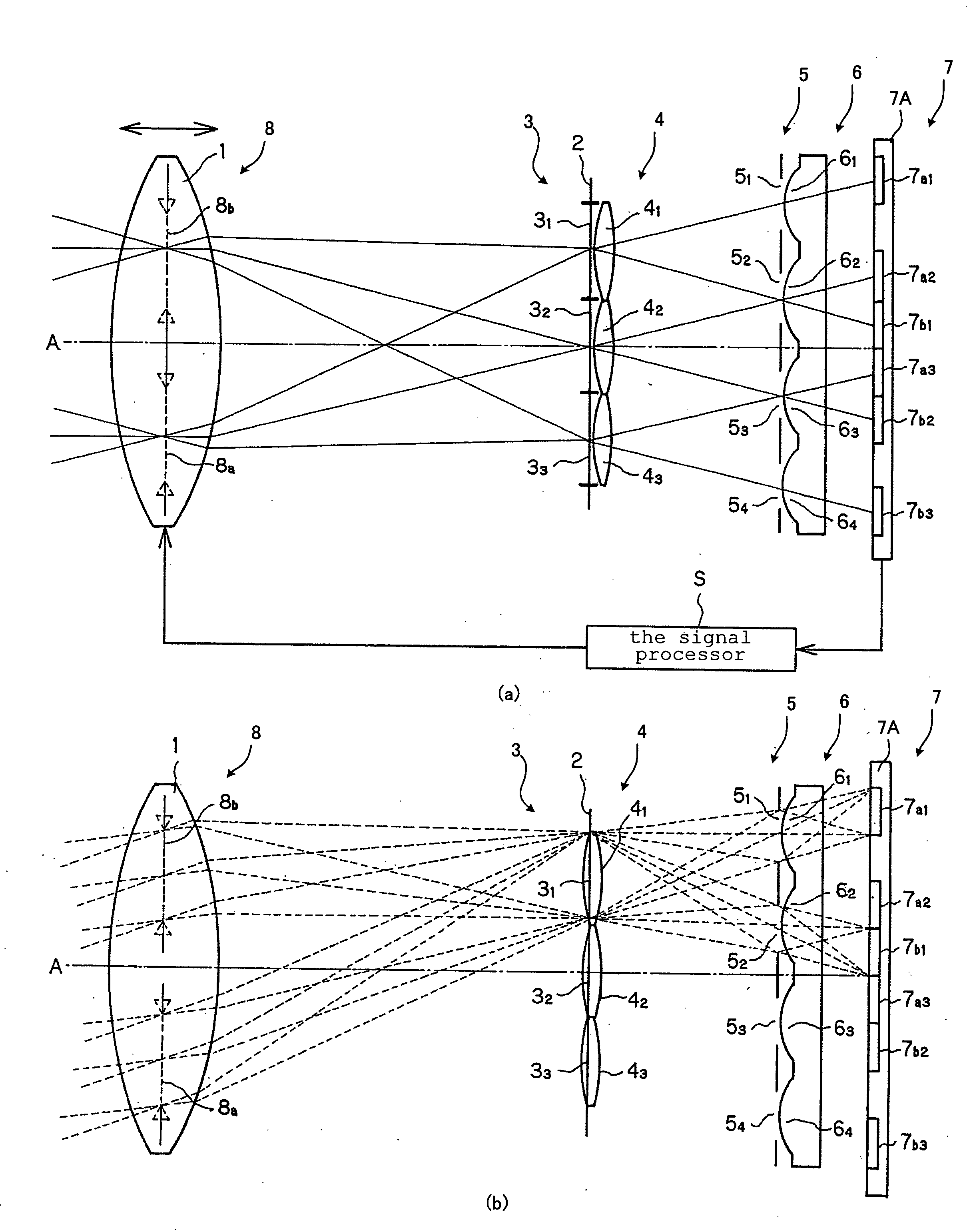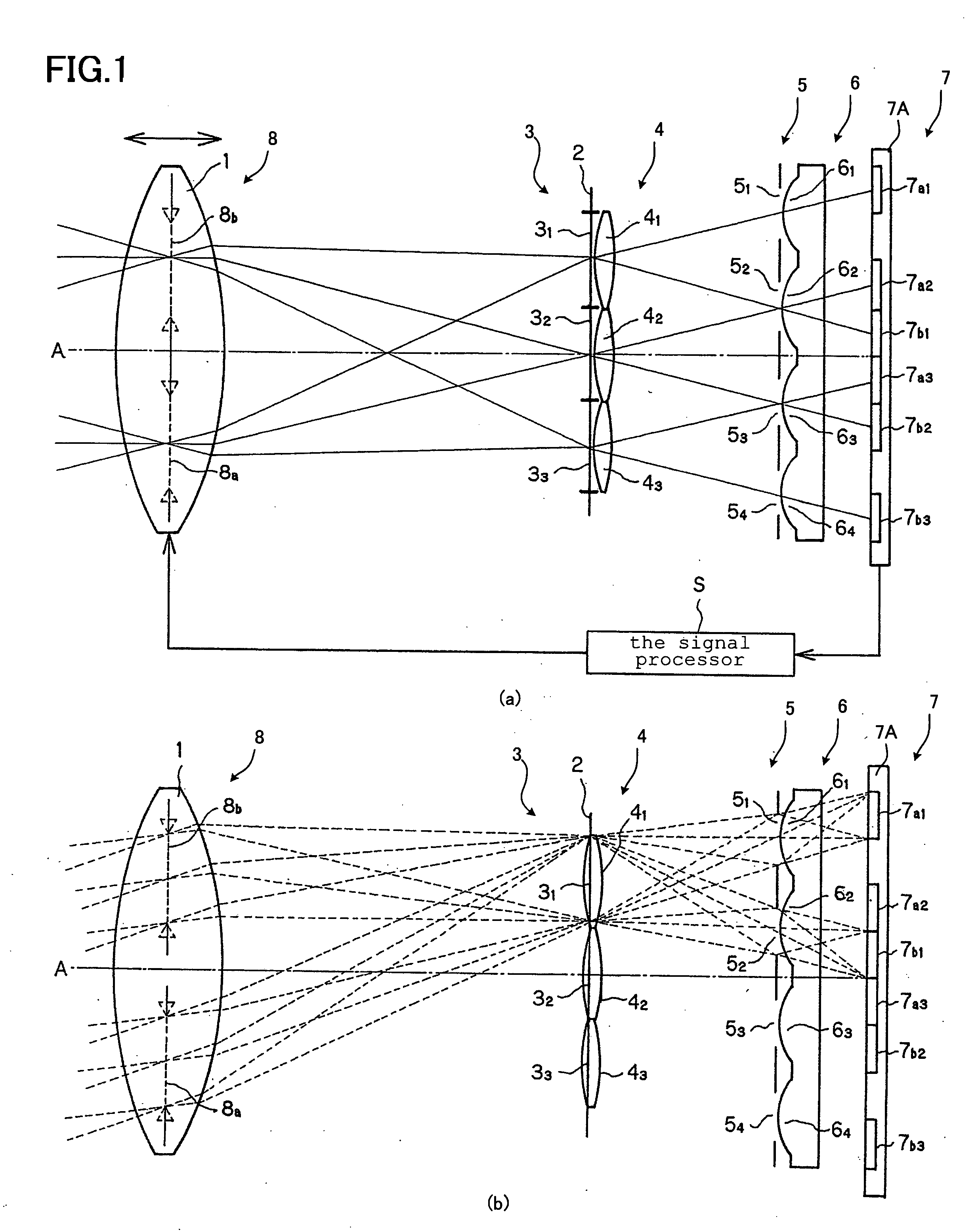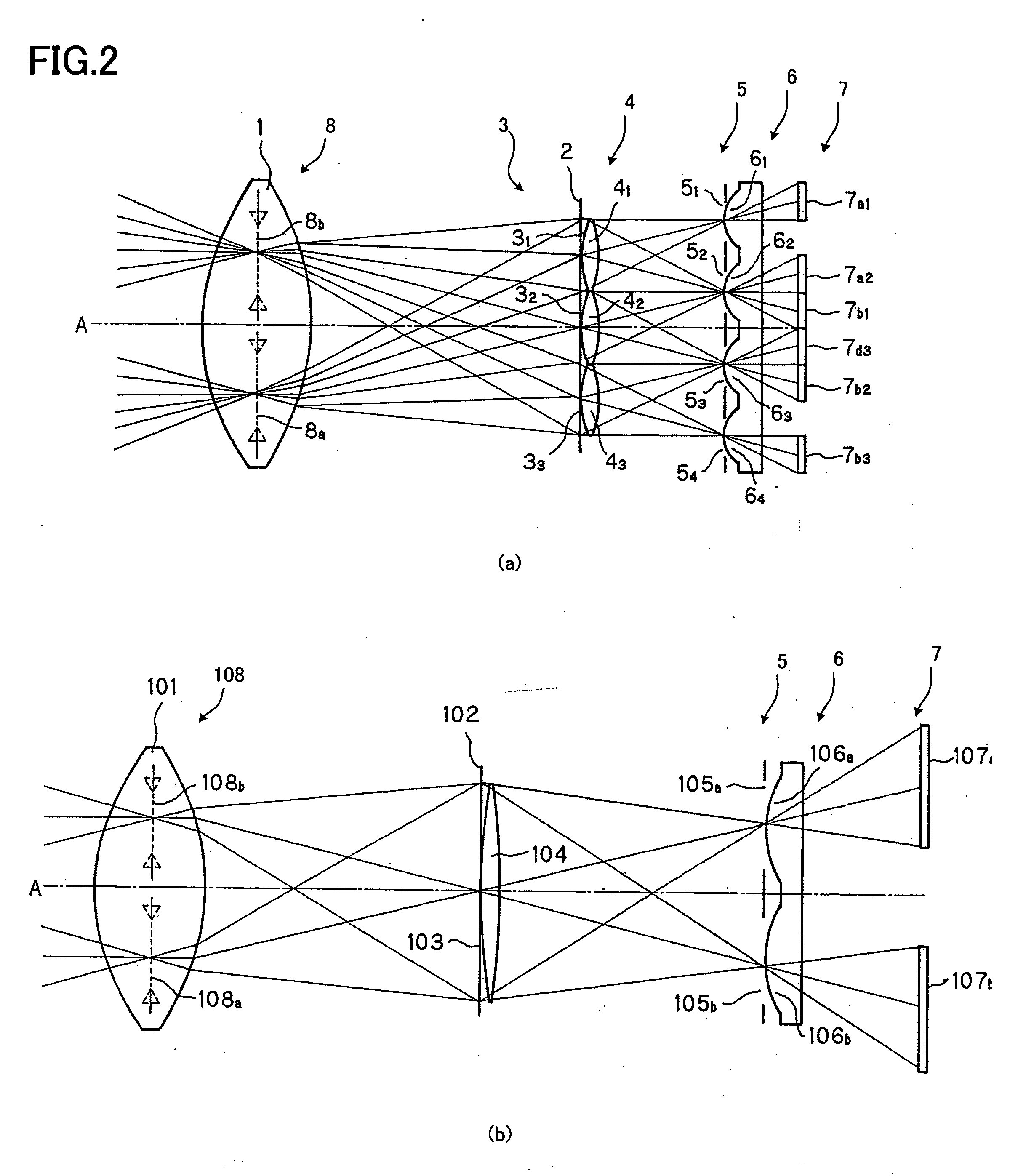Focus detection optical system, and imaging apparatus incorporating the same
a technology of optical system and imaging apparatus, which is applied in the direction of exposure control, printers, camera focusing arrangement, etc., can solve the problems of affecting aberration and likely increase in incidence angle of layout, so as to increase the degree of flexibility in the selection of focus detection areas, prevent a decrease in light quantity, and increase the degree of flexibility
- Summary
- Abstract
- Description
- Claims
- Application Information
AI Technical Summary
Benefits of technology
Problems solved by technology
Method used
Image
Examples
second embodiment
[0136]FIG. 5 is illustrative of the second embodiment wherein the embodiment of FIG. 1 is modified such that the range-finding area is extended crosswise in two directions so that phase difference information for implementing focus detection is also used in two directions. The layout for the center re-imaging lens 6 has the merit of easily extending the range-finding area crosswise.
[0137]In the embodiment shown in FIG. 5, a taking lens 21, and two sets of virtual areas (a pair of 28a and 28b, and a pair of 28c and 28d) are supposed to be provided. One set is supposed to comprise 28a and 28b and another 28c and 28d.
[0138]One set of virtual areas and another set of virtual areas are arranged in different directions (with 28a and 28b in the horizontal and 28c and 28d in the vertical). Field apertures 2321, 2322, 2323, 2312 and 2332 that define openings in five field stops for focus detection areas are supposed to be located near a predetermined imaging plane 22 (not shown) equivalent ...
third embodiment
[0163]FIG. 7 is illustrative of the invention wherein such focus detection systems as shown in FIG. 3 are arranged in rows and columns. In FIG. 7, field apertures 43 that are openings in the field stops in a focus detection area, re-imaging lenses 46 and an array of light receptor elements 47 are schematically depicted.
[0164]Briefly, there are such virtual areas 48a, 48b, 48c and 48d as in FIG. 6 provided, and there are field apertures 43ij arrayed on m matrices in the direction that the virtual areas 48a and 48b are lined up and n matrices in the direction that the virtual areas 48c and 48d are lined up (143, there are condenser lens 44ij (143.
[0165]It is here noted that m and n will increase at an increment of 1 in the lined-up direction. Each field aperture 43 is just about the detection of a phase difference in the vertical and horizontal directions, and for this, use may be made of an crosswise aperture wherein long focus detection areas in the vertical and horizontal direction...
PUM
 Login to View More
Login to View More Abstract
Description
Claims
Application Information
 Login to View More
Login to View More - R&D
- Intellectual Property
- Life Sciences
- Materials
- Tech Scout
- Unparalleled Data Quality
- Higher Quality Content
- 60% Fewer Hallucinations
Browse by: Latest US Patents, China's latest patents, Technical Efficacy Thesaurus, Application Domain, Technology Topic, Popular Technical Reports.
© 2025 PatSnap. All rights reserved.Legal|Privacy policy|Modern Slavery Act Transparency Statement|Sitemap|About US| Contact US: help@patsnap.com



